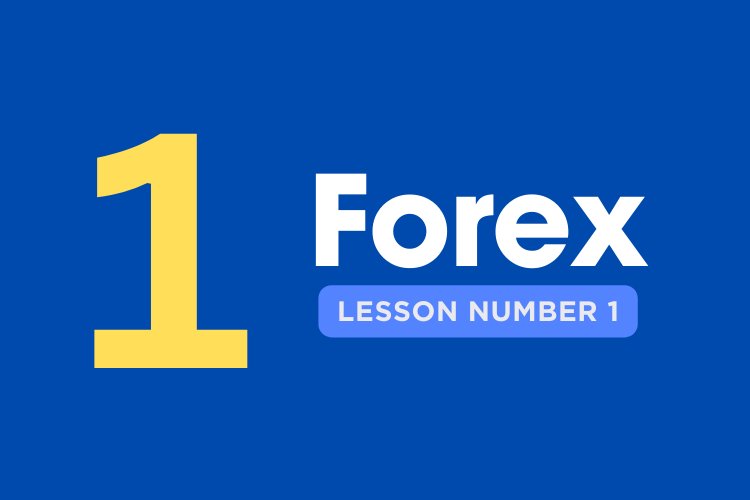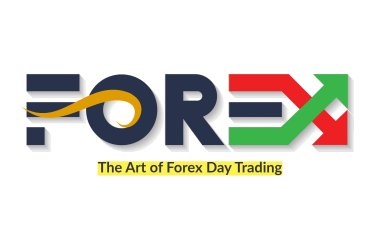Lesson 1: Welcome to lesson number one. What is Forex?
"Embark on the journey of understanding the Forex market with Lesson 1 by Robby Garnier. Discover the basics of currency trading, the scale of the forex market compared to traditional stock exchanges, and how to leverage forex for speculative gains. Whether you're new to forex or looking to refresh your knowledge, this lesson offers valuable insights into the world's largest financial market."

Lesson 1: Welcome to lesson number one. What is Forex?
So, what is Forex? It's essentially an international market for trading currencies. If you predict that a currency will increase in value compared to another and you're correct, you can earn money. Before COVID-19 hit, people used to hop on planes and jet off around the world. When visiting a new country, you'd typically exchange your home currency for the local one at an airport exchange booth.
At these booths, there'd be a screen with various foreign exchange rates displayed. An exchange rate tells you how much of one currency you can get with another. Suppose you observe the Japanese yen and reason, "Nice, one dollar buys me one hundred yen; I have ten dollars; I'm going to make a fortune!" That’s when you’re taking part in the forex market, swapping one type of cash for another.
Understanding forex trading
Wow! Or, in currency talk, let's say you're an American visiting Japan. You've swapped your dollars for yen. Before catching your flight back to the States, you hit up a currency exchange counter with the leftover yen in your pocket. As luck would have it, the exchange rates aren't what they used to be when you first arrived. It turns out that these shifts in rates might just let you pocket some extra cash through forex trading. By the way, I bet you haven't tried sushi yet. You gotta taste the bluefin tuna sushi; it's mouthwatering! It goes without saying that you likely have some spare change lying around, given that you refrained from splurging on that.
But really, what's forex all about? Forex, short for foreign exchange market, claims the title of the biggest financial playground worldwide. Imagine a virtual space where currencies from every corner of the globe are traded nonstop. That's forex for you—vast, decentralized, and always buzzing with activity. While it feels like a lot is happening, it's worth noting that only a sliver of these money swaps fuel our global economy. Sure, things like international trade and jetting off to exotic locales count for something, as I mentioned earlier. Instead...
Most of the time, people buy and sell money in the world's currency market for speculation. These currency traders—some folks call them speculators—snatch up different currencies, hoping to flip them later at a better rate. Now, if you stack this up against the New York Stock Exchange, where they shuffle around nearly 200 billion yuan, the foreign exchange market is a beast with its daily whopping 7.6 trillion dollars in trades. And yes, I said trillion with a 'T,' not billion or million.
Okay, moving along now. To give you a mental picture, let’s use some creatures. Consider the NYSE; it's the heavyweight champion of stock markets globally, churning through 200 billion bucks each day. That's loads of cash! Now, if we compare it to animals, imagine the NYSE as, say, a velociraptor or maybe a hippo in size. But then you've got the forex market, which is more like staring down a blue whale or a TRex, but let's stick with the blue whale. That's pretty much what we're talking about in terms of scale.
Whether you're tuning into the financial news on TV or browsing updates on websites like Silicon Valley, Bloomberg, or Reuters, there's always chatter about the stock market. "The NYSE is up today," they repeat over and over. Most folks think of the stock market first, noting the New York Stock Exchange as a heavyweight player.
Indeed, the NYSE packs a punch. It's no small fry. But what many don't grasp is the sheer size of the foreign exchange, or forex, market. We're talking about the largest financial arena on the planet—imagine a whopping $7.6 trillion circling. Unlike other markets, forex keeps its doors open nearly all the time. Do you remember this one? Forex is accessible 24 hours a day across five workdays. So, it doesn't just down tools and take a break for weekends!
In contrast to stocks and bonds, the forex market doesn’t punch out at day's end. No sirree. Instead, trade passes the baton globally as financial hubs welcome the new workday. It kicks off with traders in Auckland and Wellington hitting their stride in New Zealand. Next up are the markets in Sydney, followed by Singapore, Hong Kong, and Tokyo, winding through Frankfurt before reaching London.
So, the wheel of finance spins from Tokyo to London, and then New York picks it up. And before you know it, it's back in New Zealand, where everything kicks off once more. It's crazy, right? Well, that wraps up our initial lesson. Ready for what comes next? Alright, Robby Garnier is here, logging out. I wish you the best of luck.
Look for Lesson Number 2.



 admin
admin 










